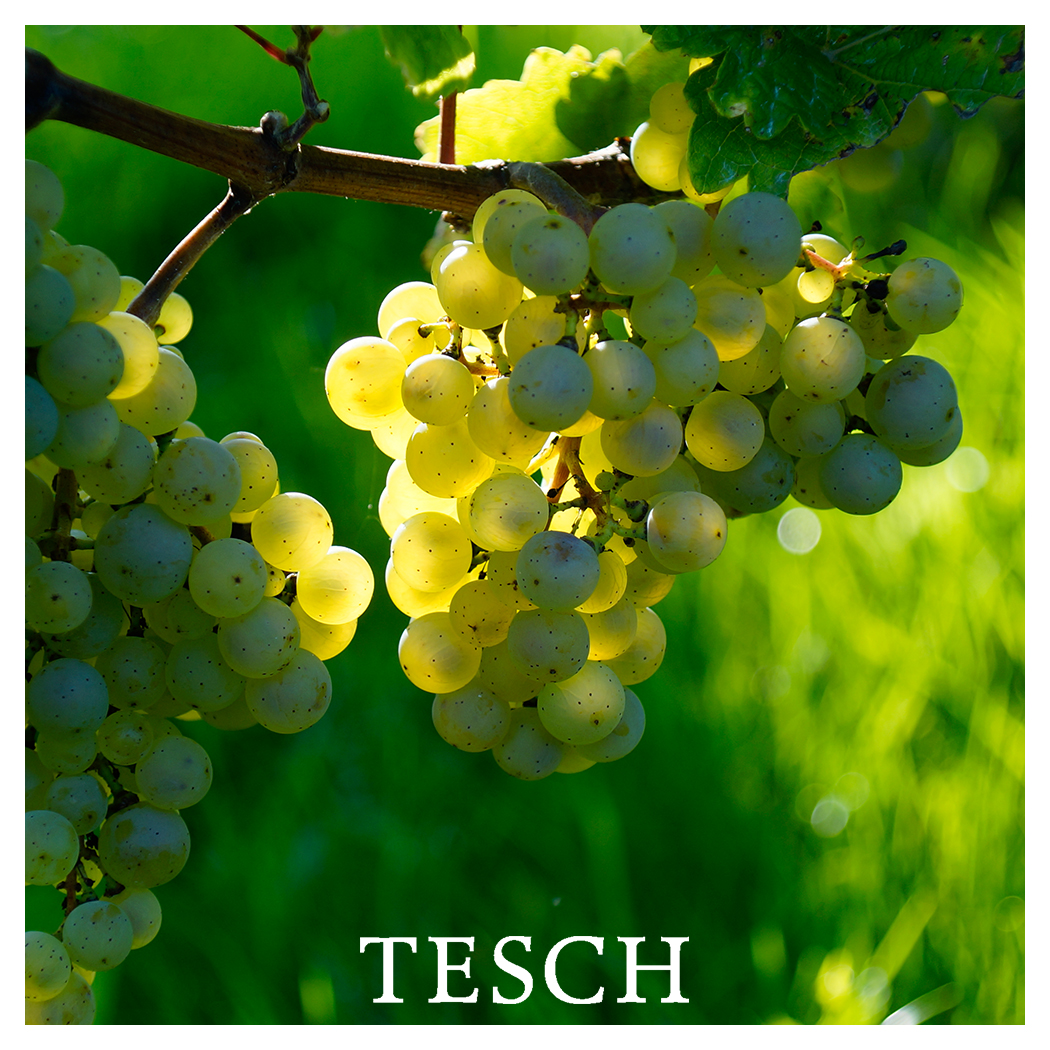TESCH Vintage Report 2019
Source: robertparker.com | S. Reinhardt
„Riesling has been the perfect grape variety for northern climates for centuries,“ postulates Dr. Martin Tesch in his vintage report. „Expressive wines with moderate alcohol are part of our identity and therefore belong to the cultural artifacts of the region.“ Those who know Tesch’s Rieslings know how much this philosophy is inscribed in them and adds another dimension to the so-called terroir character, that of cultural identity. It is more enduring than the climate and has its effects. Riesling „is in fact particularly sensitive to climatic changes, especially to rising temperatures,“ says Tesch. „This is why the consequences of climate change are particularly evident here at an early stage.“ The fact that Tesch’s 2019 Rieslings are compared, as has just happened, with those from Austria, but at the same time are considered to be possibly too austere for non-Teutons, shows how German Riesling is located between the poles today. To replace it with other grape varieties, as is sometimes hastily proposed, is absurd. Even science certifies that Riesling is highly adaptable to climatic conditions. The style may change, but from austere or Teutonic to Austrian or Alsatian?
Martin Tesch has something against it, because he feels like, well, Teuton and wants to continue to produce a cool, Nordic Riesling type. Despite global warming, after all, there are many viticultural measures to protect the grapes from the sun, drought and early ripening. His recently launched interpretations of the 2019 vintage have impressively shown „that Riesling is not (yet) lost“ and that Tesch does not need to have any identification problems with his own wine. „May 2019 was still cool and humid,“ resorts Tesch. „In the summer, there was record heat. There was no precipitation. For the old Riesling vines, whose roots can be up to 20 meters long, this is not a big problem at first. They tap water reserves in deeper soil layers. For the young plantings, we try to alleviate the drought by paying special attention to the shading of the soil. In this way, we can significantly reduce the temperature in the vineyard.“ But what does it do about the other problem, the high and direct sunlight, the sunburn that can also affect grapes? After all, on one of the hottest days of the vintage, Martin and I were standing together in vineyards on the upper Nahe River and literally saw the grapes exposed to the baking sun. The heat came from below and from above, but the grape zone was exposed.
„In some years, this defoliation is a good idea because it allows better ventilation of the fruit,“ says Tesch. „The grapes don’t get sick so quickly when they’re damp. In hot years, however, this can have disastrous consequences. That’s why our vineyards are not defoliated at extreme temperatures.“ Although the leaves grow back and protect the grapes, it is then too late for burnt berries. Thank God, however, hardly any winegrower is focusing on de-leafing in all plants—this could endanger the entire harvest. The last few summers were all extremely sunny. Yet, back to 2019, in September the weather conditions in the vineyards of Langenlonsheim and Laubenheim were „much more relaxed,“ reports Tesch. „It was cool and rainy. The cold temperatures gave the grapes time to slowly develop their aromas.“ So, just as desired and recognized as the cause of the essence of German Riesling for a long time.
So, how are my first impressions of the wines? Martin Tesch’s single-vineyard series of the 2019 Rieslings is more than excellent and includes some wines that might even be the finest he has produced. St. Remigiusberg, Karthäuser, Rothenberg and Krone are the highlights of the crus, as is the Riesling Unplugged that has rarely been so precise, pure and linear. I never tasted this former Kabinett trocken on the level of the crus, but with the 2019 in my glass I do. However, in 2019 Tesch’s Rieslings taste a bit richer and rounder than usual, although these are „the driest you have ever tasted from us,“ Tesch told me while the bottling line was running. „Due to low yields, the extract levels are enormously high in 2019, and the wines are really substantial.“ Having tasted the wines again in early August, I admit, this is true. The wines are rich and intense yet impressively balanced by their mineral backbone and freshness. Based on his 2019s I can only repeat that Martin Tesch is one of the most interesting producers in Germany when it comes to dry, linear, straightforward and functional Riesling classics in top quality and for affordable prices. And yes, they are still pretty much Nahe-styled. I can’t see Austria from here and even not austerity.

